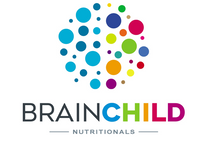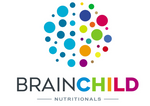The Science Behind Glutathione Supplements for Autism
Autism spectrum disorders (ASDs) include a number of neurodevelopmental deficits that present themselves in children as young as one year old. Impairments primarily affect cognitive, communicative and social development, with some areas more impaired than others. The DSM-V defines autism in terms of three levels of support. For example, children with ASD Level 3 require substantial (24/7) support. They may be unable to speak, learn how to go to the bathroom by themselves and have IQs under 70.
Children diagnosed with ASD Level 2 can communicate, use the bathroom alone and attend schools for autistic children. The least severe diagnosis is ASD Level 1. Considered the "high functioning" form of all ASDs, this level is somewhat comparable to children and adults with Asperger's. While intelligence is normal or high, those with ASD Level 1 have difficulty interacting with others. They may speak robotically, avoid eye contact and make odd statements at inappropriate times.
While official acknowledgement of ASDs by health professionals happened in the early 1980s, tracking the prevalence of autism in the U.S. began only 20 years ago. Furthermore, the alarming rise in autism rates since then has doctors scratching their heads at why autism diagnoses are rapidly increasing in the 21st century.

Glutathione for Autism: What Does the Science Say?
The CDC estimates that about one child out of every 10,000 children were diagnosed with a neurodevelopmental disorder in the 1970s that was likely an ASD. Today, the CDC reports one in every 68 children has some form of autism spectrum disorder. Reasons for the skyrocketing prevalence of ASDs range from the ability to better diagnose symptoms at earlier ages to improved statistical technology.
Alternately, a growing number of researchers are investigating another reason for ASD--lack of sufficient glutathione in the body. Before talking about several clinical studies that clearly show a direct correlation between glutathione and autism, it's important to know what glutathione is and how it provides health benefits to children with ASDs.

Facts About Glutathione
- Glutathione (GSH) is naturally produced by the body. It requires three amino acids--glycine, glutamic acid and cysteine--for development and can be found in nearly all body tissues.
- GSH is a powerful antioxidant, detoxifier and free radical scavenger essential for eliminating the presence of harmful substances that get into the body. In studies, GSH has been shown to quickly removes traces of heavy metals, pesticides/herbicides, environmental pollution and industrial chemicals within the bloodstream and body tissues.
- GSH supports our immune system by providing added protection against viruses, bacteria and other disease-causing pathogens.
- Consistent deficiency of glutathione is a primary cause of oxidative stress, which can influence the development of cancer, diabetes, heart attack, liver disease and Alzheimer's disease.
Oxidative stress is a type of inflammation that occurs when an imbalance of antioxidants (like glutathione) and free radicals (molecules that cause rapid cell aging and death) starts attacking the body. While mild inflammation is sometimes needed to fight infections, sustained oxidative stress may promote a wide variety of diseases and disorders.
Diet, lifestyle and genetics are already known to be triggers for oxidative stress. Over the past decade, however, researchers are discovering that environmental factors like radiation, pollution, heavy metals and chemicals in the soil and water may be even more responsible for the increase in oxidative stress and chronic diseases.
An early research study involving autism and oxidative stress was published in early 2004, suggesting that children with ASD metabolized copper and iron abnormally. The authors also thought that "increased oxidative stress could play a pathological role in autism spectrum disorders".
Within a few years, more studies began assessing the possibility that oxidative stress could be a leading factor in the development of autism. A 2012 study published in Current Medicinal Chemistry reported that children with autism consistently "had decreased glutathione levels due to high oxidative stress". The authors concluded that "those with ASDs are affected by an imbalance between their anti-oxidative and oxidative stress systems, a condition which could be treated with glutathione supplementation".

What are Glutathione Benefits for Children with Autism?
A 2020 study published in Neurochemical Research described results of a three-month, placebo-controlled, randomized clinical trial in which the glutathione levels of 33 autistic children were gradually increased. "Significant improvements" on the Repetitive Behavior Scale, Social Responsiveness Scale and the Aberrant Behavior Checklist scale were reported in all children.
While glutathione supplements for autism won't produce results over night, most parents report that, within six to eight weeks of giving their child glutathione mixed with water or milk, they noticed reductions in the following behaviors:
- Hand flapping and body rocking
- Getting less upset over minor changes in routine
- More focused when somebody is speaking to them
- Fewer instances of irritability, moodiness and intense reactions to sense stimuli
- Decrease in hyperactive and inattentive behavior
As glutathione supplements actively minimize oxidative stress in your child's body, cognition, communication and social skills will begin improving as well. The brain requires more oxygen and energy to function normally than any other organ in the body. A young child's brain is especially dependent on receiving ample amounts of oxygen and energy for proper growth and development. When oxidative stress due to low glutathione interferes with cell communication and signaling in an autistic child's brain, the child will naturally suffer deficits in speech, learning, focus and other cognitive issues.
Get Your Child Started on Glutathione Supplements Today
Brain Child Nutritionals is a leading provider of oral glutathione supplements in an easy-to-use, proprietary liquid form. Combining glutathione with liposomes promotes absorption of glutathione by the brain and body. In contrast, standard gluthathione supplements do not contain liposomes, which makes it harder for the body to absorb and utilize glutathione properly.
Questions or concerns? Feel free to contact us anytime.






